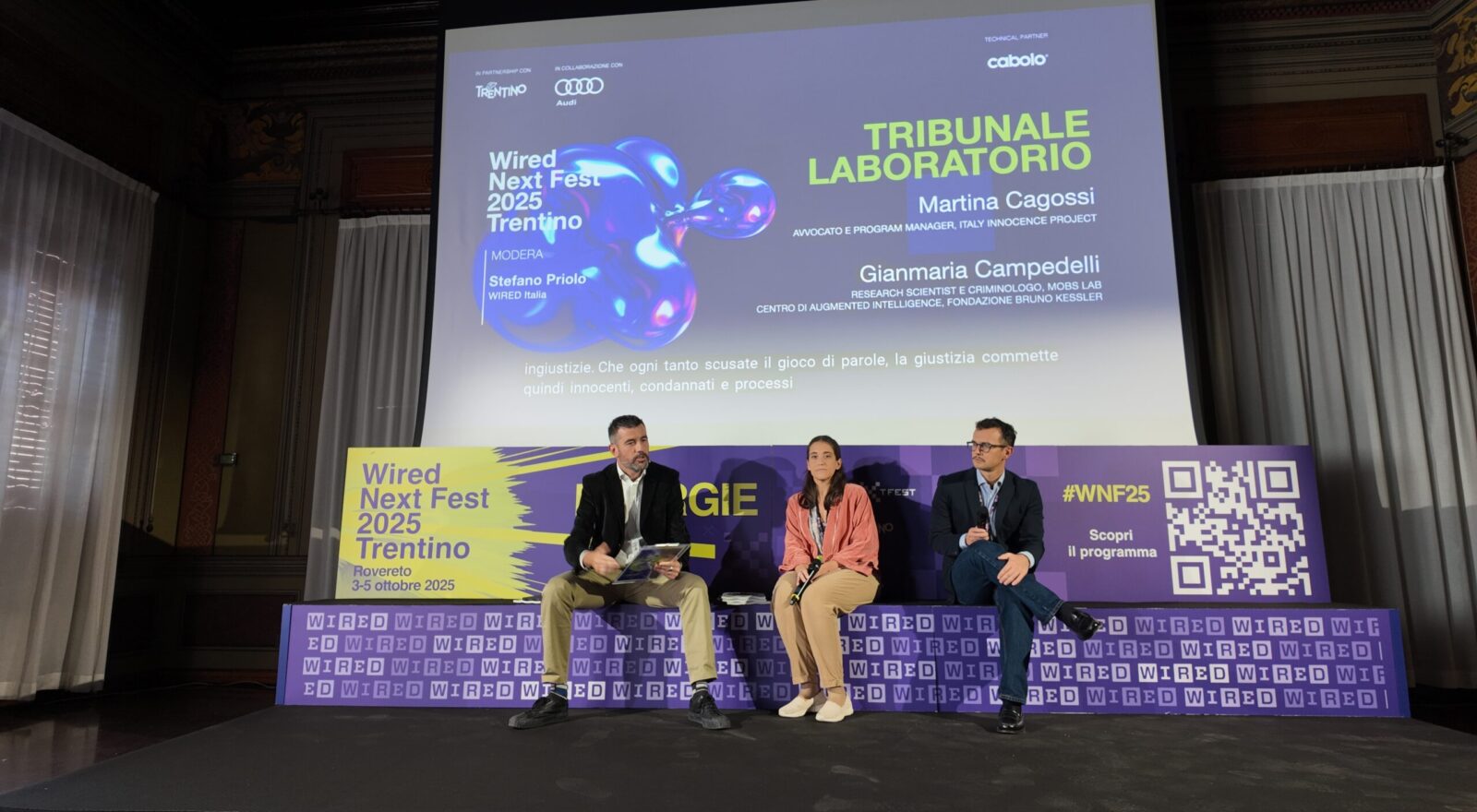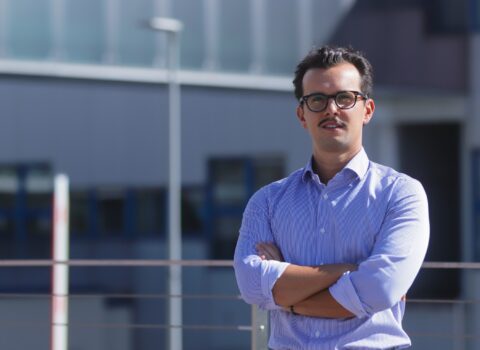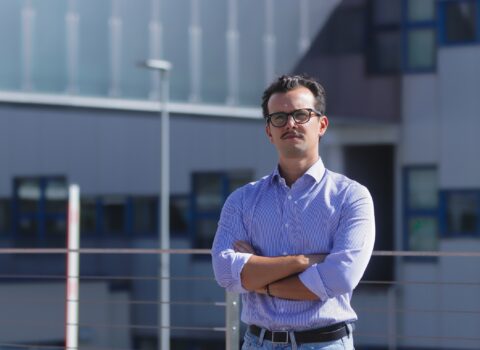
Data and algorithms to address failings in Italy’s justice system
There are many miscarriages of justice that can occur in the Italian system: according to data from Innocent Project Italia, almost 32,000 between 1991 and 2024, for an average of 940 cases per year. This also causes economic damage to the state coffers, which have had to pay out around €1 billion in compensation over the last 35 years.
Starting from this troubling statistic, Gian Maria Campedelli, criminologist and researcher at the Mobile and Social Computing (MobS) Lab at Fondazione Bruno Kessler, and Martina Cagossi, lawyer and program manager for Innocence Project Italia, joined journalist Stefano Priolo in a discussion on the potential of data science tools and artificial intelligence to help mitigate these errors. Where Italy currently stands and what the benefits and risks of such solutions might be
“Unfortunately, our country faces serious challenges with data availability,” Campedelli noted. “Compared to other nations, access is neither easy nor transparent. In some cases, we’re dealing with actual “digital deserts”. What we need is digital education, scientific literacy, and—given the current structure of the legal system—a cultural shift.”
Cagossi voiced concerns about the adoption of AI tools, particularly during investigations, warning that they could lead to unequal access to justice. For example, access to critical datasets may not be guaranteed equally for all parties, and there is a risk that prosecutors, defense attorneys, or judges might uncritically adopt these tools without fully understanding their limitations. The issue is a delicate one, but it must necessarily be addressed.
It is important to look at other countries, and while the use of datasets and algorithms is now widespread in the United States, it is also essential in Italy to study the results and, at the same time, analyze the errors and learn from them.
Cities like New York, Los Angeles, and Chicago employ advanced tools for crime prevention and control. However, these tools have also exposed deep flaws—such as racial bias embedded in datasets in the US— which underline the urgent need for regulatory oversight and data quality controls.
“I do not call myself an absolute techno-optimist – Campedelli concluded – but I strongly believe that the use of data and a scientific approach can, in a country like ours, make an extremely positive contribution to justice. For this to happen, however, structural reforms are needed that rethink the link between institutions and scientific research and, above all, the establishment of bodies that have technical and intellectual tools to monitor the use of cutting-edge scientific methods in these areas”.
_________________________________________________________________________________________________
The WIRED Next Fest Trentino is organized by WIRED Italia in partnership with the Autonomous Province of Trento – Department of Economic Development, Work, Family, University and Research – Trentino Marketing, Trentino Sviluppo, Azienda per il Turismo Rovereto, Vallagarina e Monte Baldo, Municipality of Rovereto.
The Scientific Committee chaired by the Head of Content of WIRED Italia works on the construction of the program, with the participation of the University of Trento, Fondazione Bruno Kessler, Fondazione Edmund Mach, Fondazione Hub Innovazione Trentino, the Provincial Institute for Research and Educational Experimentation – IPRASE and MUSE – Museo delle Scienze.





